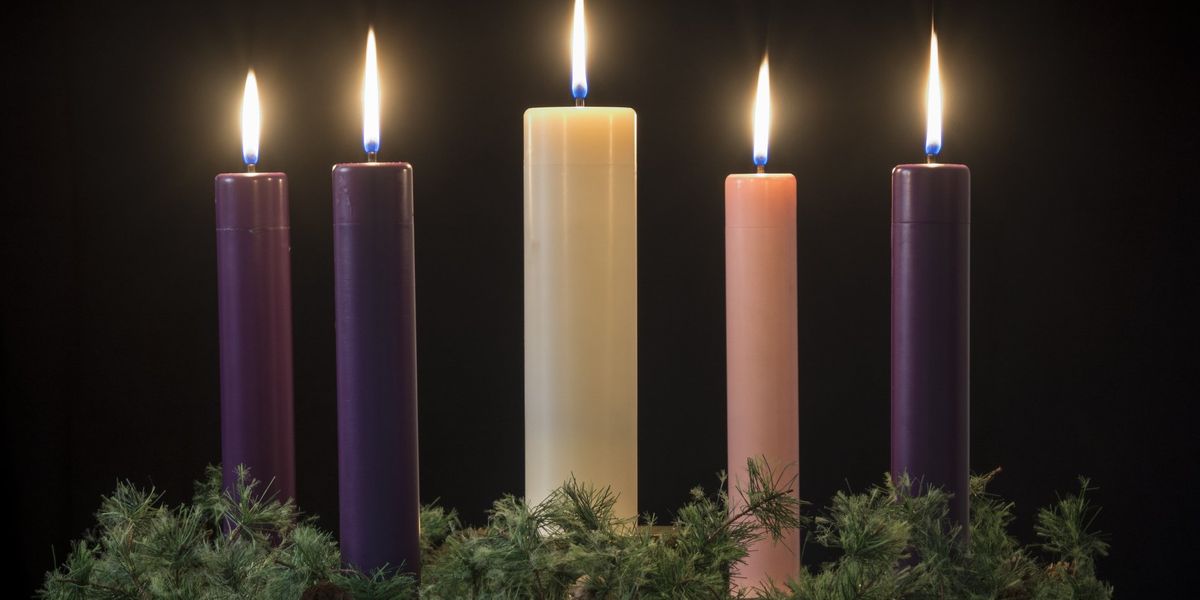We support our Publishers and Content Creators. You can view this story on their website by CLICKING HERE.

Today is the beginning of Advent, the Christian season of preparation and anticipation leading up to Christmas.
For most Christians, Advent is a time to slow down, to spend time with God and community, to serve others, and to prepare oneself for celebrating the birth of Jesus Christ. This is good and right.
But focusing only on the birth of Christ robs us of Advent’s full meaning.
The word “Advent” is derived from the Latin word adventus, which can be translated as “arrival” or “coming.” The word adventus, moreover, is used to translate the Greek word parousia, the word used in the Greek New Testament to refer to the second coming of Jesus Christ.
Why is this important?
It means that Advent is not only a season of anticipating the arrival of Jesus — the long-awaited and hoped-for Messiah — but it’s a season to anticipate and prepare for Christ’s return.
Let us prepare our hearts not only for the Incarnation, but for the triumphal return of Christ and the consummation of all creation.
During Advent, we should reflect on how the two arrivals of Jesus are, according to Bible scholar Dr. Jonathan Gibson, “distinctly contrasted” but “inseparably connected.”
“If he came the first time in quiet humility to the few, he will come the second time in rapturous glory to the many. If in the first coming he was wrapped in swaddling clothes and attended by animals, in the second he will be wrapped in blinding light and attended by angels. In his first coming, he was seen in a lowly manger by the magi; in his second coming, he will be seen on an exalted throne by the multitudes,” Gibson observes.
Why is this important? Because, as Gibson explains, the first and second coming of Christ “bookend” His redemptive work.
“In his first coming Christ came to inaugurate his kingdom (Mark 1:15) and secure redemption for his people (John 6:39). But the kingdom was only provisionally realized; the redemption only partially applied in that first coming. The consummation of the kingdom will only be fully realized (2 Timothy 4:1) and the completion of redemption only be fully applied (Philippians 1:6) in Christ’s second coming,” Gibson explains. “What Christ began to do in his first coming, he will return to complete in his second coming.”
The season of Advent, then, is full of temporal tension.
As we remember Christ’s first coming and prepare for His second, we get to embrace living in the “already but not yet.” That means letting the hope of Christ’s return and His impending triumph over all creation shape how we live today.
At the same time, Advent is a time to cultivate joyful expectation. God is faithful, and Christ will return to make all things right. Though we have long awaited His return, the faithfulness of God gives us hope and strength to persevere as we continue to wait for that glorious day.
So as we light Advent candles, open Advent calendars, and sing Advent hymns, let us remember the full meaning of the Advent season. Let us prepare our hearts not only for the Incarnation, but for the triumphal return of Christ and the consummation of all creation.
A prayer for the first Sunday of Advent
From the Book of Common Prayer.
Almighty God,
Give us grace to cast away the works of darkness, and put on the armor of light, now in the time of this mortal life in which your Son Jesus Christ came to visit us in great humility; that in the last day, when he shall come again in his glorious majesty to judge both the living and the dead, we may rise to the life immortal; through him who lives and reigns with you and the Holy Spirit, one God, now and forever.
Amen.

 Conservative
Conservative  Search
Search Trending
Trending Current News
Current News 







